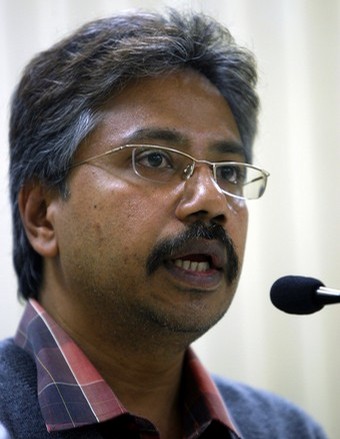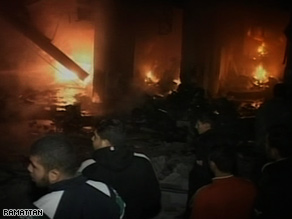 KUALA LUMPUR, Dec 31 — Equally loved and loathed, Tun Dr Mahathir Mohamad might have retired from public life five years ago but 2008 has seen his greatest impact on Malaysian life for him to become The Malaysian Insider’s “Malaysian of the Year”.
KUALA LUMPUR, Dec 31 — Equally loved and loathed, Tun Dr Mahathir Mohamad might have retired from public life five years ago but 2008 has seen his greatest impact on Malaysian life for him to become The Malaysian Insider’s “Malaysian of the Year”.
In a year of change, many could have easily taken that accolade — ranging from Datuk Seri Anwar Ibrahim who capped 10 years of political wilderness with a hair’s-breadth chance of finally becoming Prime Minister to the Malaysian voter who reminded the politicians “who’s the boss”.
But Dr M — he of the sarcasm and smirk — made 2008 all his own. Revered or reviled, he recovered from illness last year to remonstrate the government, regain his momentum against successor Datuk Seri Abdullah Ahmad Badawi, resign from Umno, revive Mahathirism, repudiate his critics and rejuvenate his son Datuk Mukhriz’s chances of being Umno Youth chief.
Beyond the pulpit of public office, Mahathir is still widely popular despite being without a party. Legions of fans and supporters have continued to praise him for his stand, thoughts and ideas for the country and the world.
His eight-month-old www.chedet.com blog has received some 10 million visitors with more bouquets than brickbats. Others have simply dismissed him as an old man whose time has gone by and he should just retire in peace.
But his influence has grown even beyond the Pakatan Rakyat (PR) electoral pact put together by his one-time protege Anwar. He told people to vote in a strong opposition but later blamed Barisan Nasional’s unprecedented election losses on a weak leadership. He has castigated, criticised and cut down Umno leaders and former political allies to size, without fear or favour.
Proving that age has not dimmed his memory nor withered his caustic tongue, Mahathir has single-handedly and single-mindedly hounded Abdullah out office prematurely — using a combination of his wildly popular blog, public appearances and media interviews that finally prompted Umno to ungraciously unseat his somnambulist successor.
His reasoning is simple, underscored by the second blogpost — “As for my criticisms of the leaders of the present Government, I believe I have every right to do so. Retiring from the Government simply means giving up authority and power. It does not mean I must abdicate my role as a citizen.”
The second last posting said even more when Mahathir commented on a stretch of public holidays which for some is a happy confluence of the Islamic and Gregorian calendars.
“It shows that we really don’t need a Government. It will just coast along even if no one is steering it. That is how good we have become at governing,” he said with his trademark sarcasm without even referring to Abdullah.
His tireless tirade against Abdullah culminated with his May 19 resignation from Umno Baru, which he founded in 1988. Mahathir has yet to rejoin Umno despite Abdullah set to hand over Putrajaya to the party’s president-elect Datuk Seri Najib Abdul Razak, whom he has also called a weak leader.
Focusing on the ruling coalition and accusing the opposition of collusion with Abdullah, Mahathir’s constant carping and criticisms helped to chip away support for Barisan Nasional and awakened the people to the possibility of change in the country.
Not quite the result that he wanted but the ends justified the means.
Although he, like many other Malaysians, has complained about the lack of freedom of expression to criticise the government, Mahathir has personally stifled dissent, brooking no opposition to his thoughts and ideas — the short side of Mahathirisim where prosperity flourished while freedom decayed.
For him, the change should be towards Mahathirism which a growing number do believe is the salvation for the country, fondly recalling the steady hand and calm mind in both the 1987/88 and 1997/1998 financial crises.
For others, dismantling his legacy cannot start soon enough although it has proven difficult against this man who ruled for 22 years and united people for and against him, even beyond the pale of Putrajaya, where he sits in his Nehru jacket in an exact replica of his Prime Minister’s Office — writing, reading and reiterating his way of life.
All said and done, Mahathir’s shadow looms large and he continues to exert a great influence in Malaysia, for better or worse, and has no equal as 2008’s Malaysian of the Year.














